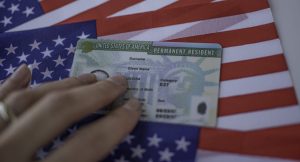Are Divorce Records Public in California?
Yes. According to California law, divorce records are public records. This means anyone who has any interest or motive can simply file a form to obtain a copy of the divorce decree that is entered into the public record by a California court.
For people concerned with privacy, especially for religious reasons, the ramifications of a public divorce filing can be serious. For example, if you are a practicing Catholic, one of the tenets of that faith is the prohibition on divorce, or even allowing remarriage after divorce when both spouses are still alive.
If you are concerned about the potential harms associated with a public divorce filing, do not give up hope. There are options available that could potentially protect your divorce records.
But first, let’s address the rationale behind making divorce records publicly available information.
Why Divorce Records are Public in California
Divorce records fall into a larger category of records known as “administrative records.” In California, administrative records have been deemed subject to public disclosure by the Judicial Council of California. Administrative records include the documents associated with your birth, death, marriage, and divorce.
To access divorce records, you can simply contact the California Department of Public Health (CDPH). The CDPH has been maintaining copies of birth, death, and marriage records since 1905 and offers records on file from as early as that year.
Two Types of Divorce Records
The Judicial Council of California offers two types of divorce records that can be accessed by the public:
- An authorized copy of the divorce – This is a certified copy of the divorce record that someone could use for official purposes such as establishing identity. The registrant, their parent or legal guardian, child, sibling, spouse, or domestic partner are the only private citizens who can get an authorized copy. Law enforcement or a representative of a government agency conducting official business can also get one.
- An information copy of the divorce – This contains the same information as an authorized copy, but the divorced parties can’t use it as a document to establish identity. It is available to anyone.
Superior Court Maintains Divorce Records
It is also possible to obtain divorce records by contacting the superior court where the couple filed for divorce. This is where officials keep actual copies of the divorce record. If you decide to contact the superior court, you need to make a request with the court to get an official copy.
If you want to get a copy this way, contact the court in question and speak to a clerk. They will most likely send a request form that must be filled out and mailed to the court. Responses are typically issued within 60 days.
Another option for accessing these records is to use the Public Libraries website. There, you can search for divorce records if you input the first and last names of one or two parties involved.
Sealing Divorce Records
If you do not want just anyone to be able to access your divorce records, you could go through the process of sealing the records. Bear in mind, sealing divorce records in California can be a time-consuming and complex process that will ultimately require a court order. If you want to try and get your divorce records sealed, it is strongly recommended to retain the services of an experienced and reputable Marin County divorce lawyer. Why? Because they can help in the process of filing the requisite paperwork to get those records sealed.
Generally, to seal divorce records, you will need to first file an application with the county court providing reasons that justify your request. The court will be more inclined to approve your request if the divorce records include sensitive personal information. This can include details about children and finances as well as criminal information like domestic abuse that should not be public.
If the court accepts the application, it will send a written order to the CDPH and your records will be sealed. The specific procedures for sealing public records vary from county to county. If you need more information, try contacting the superior court where you filed for divorce.
Consider Alternatives to Filing for Divorce
If you are looking to separate from your spouse, but dread the prospect of publicly filing for divorce, there are other options to consider that could very well achieve the same objective, including:
- Summary dissolution – This is considered to be the easiest way to dissolve a marriage under California law. It is only available to couples who have been married for less than five years, do not have children together, and agree on the division of community property and debts.
- Annulment – A marriage may be annulled if you have evidence that shows fraud, force, unsound mind, prior existing marriage, incapacity, bigamy, incest, or underage marriage. If you qualify for an annulment, then you can erase your marriage and avoid having a divorce on record.
- Legal separation – Legally separating does not terminate a marriage, but it stops you and your spouse from remarrying. Legal separation is a convenient alternative to outright divorce; it’s often chosen by couples who don’t want to divorce for religious or practical reasons such as maintaining health insurance. And if you need to, you can still file for divorce later on.
Looking for Guidance on How to File for Divorce or Protect Your Divorce Records in California? Contact Castro Law Offices, P.C. Today
If you are contemplating filing for divorce, have already begun the process of filing for divorce and are concerned about a public filing, then now is the time to sit down with a seasoned counselor who can help explain your options. During a divorce, there is a good chance you may be feeling overwhelmed, anxious, and uncertain about your future. This is understandable because the end of a marriage is the beginning of a series of significant issues that must be addressed before your divorce can be finalized. During this emotionally-draining and challenging time, you need an experienced and knowledgeable Marin County divorce attorney on your side who is ready, willing and able to fight for your best interests during the divorce proceedings, including taking steps to get any public records sealed (depending on the facts of your case). If you are looking for top-notch legal counsel, then contact Castro Law Offices, P.C. today to schedule a confidential case review.




